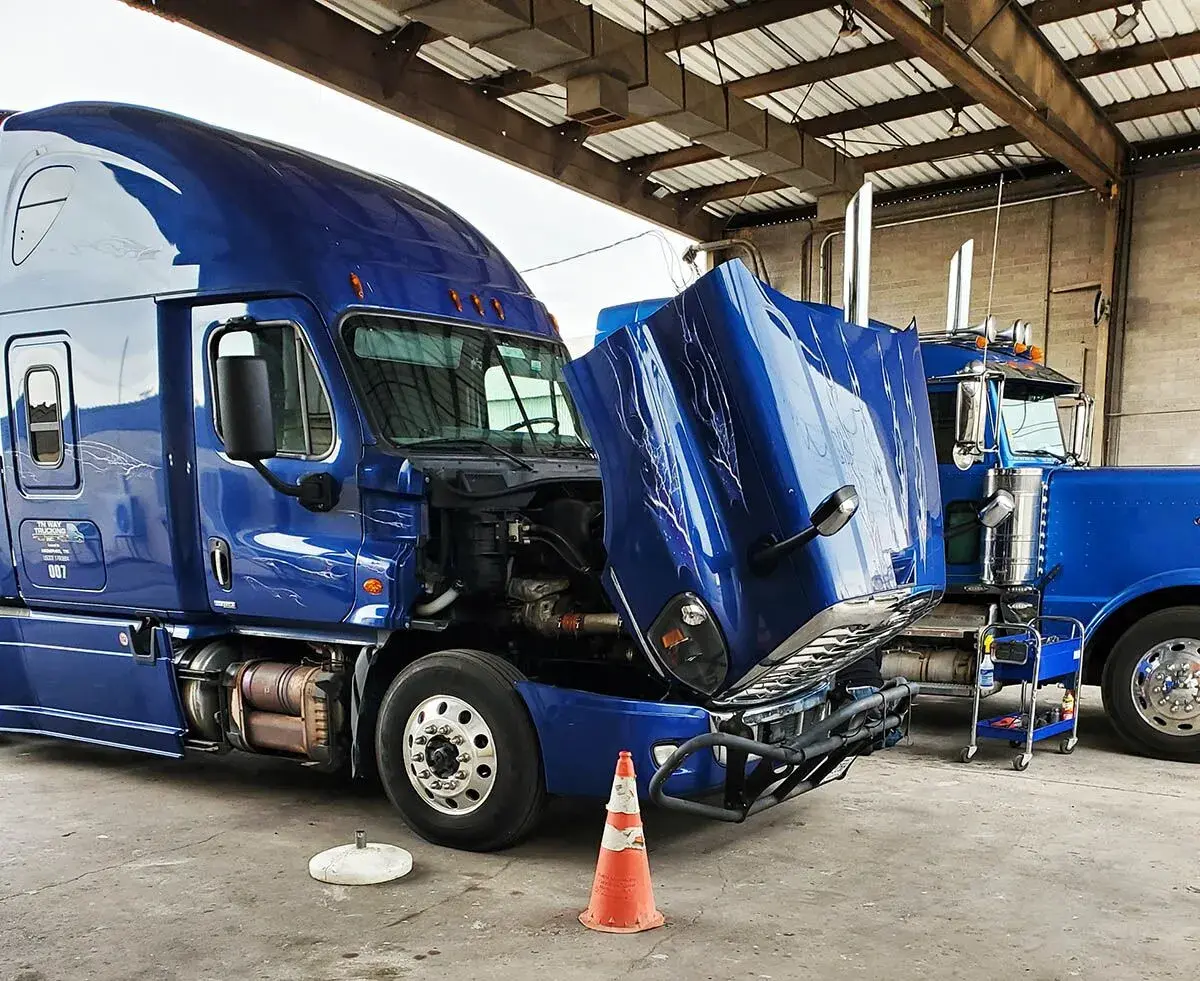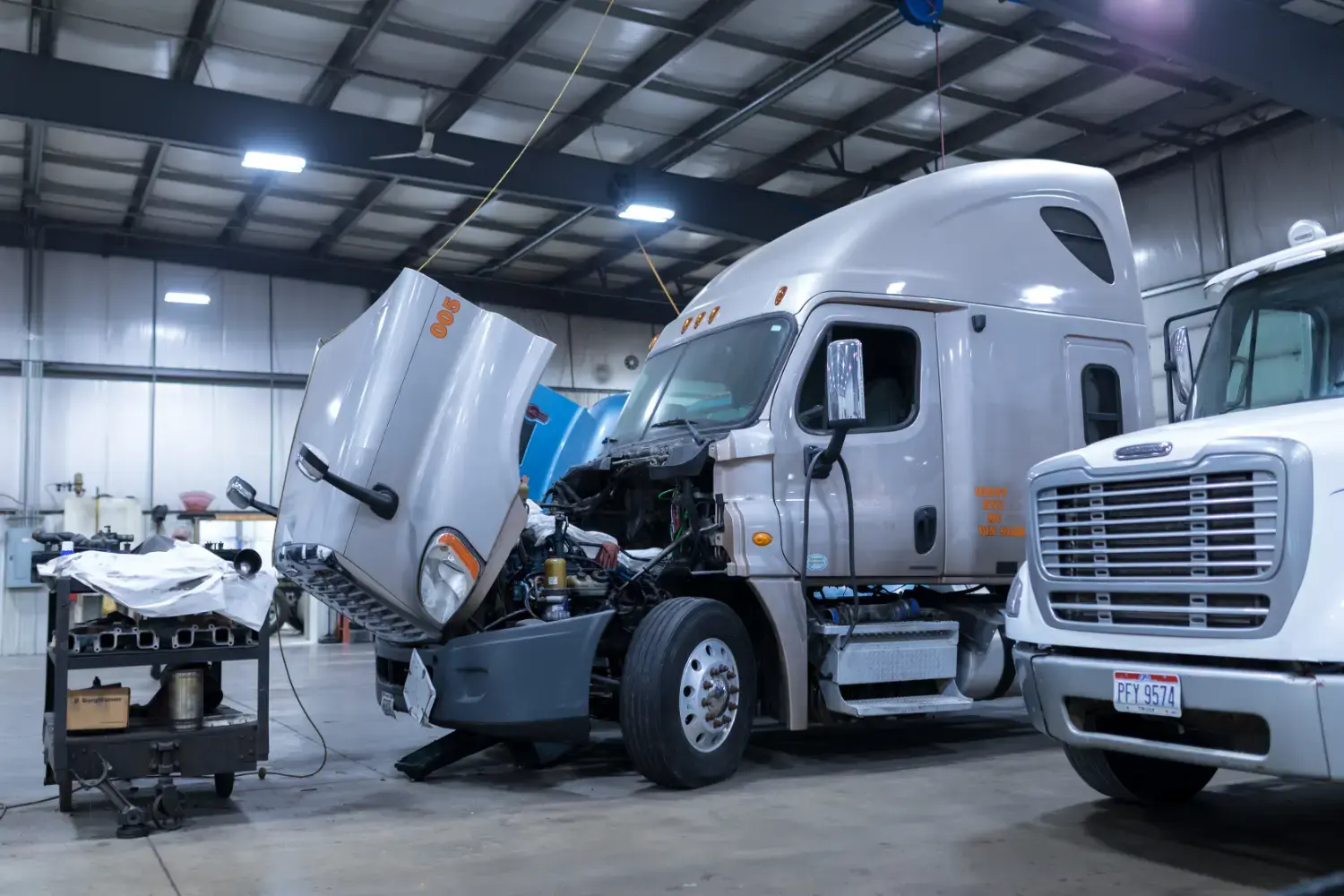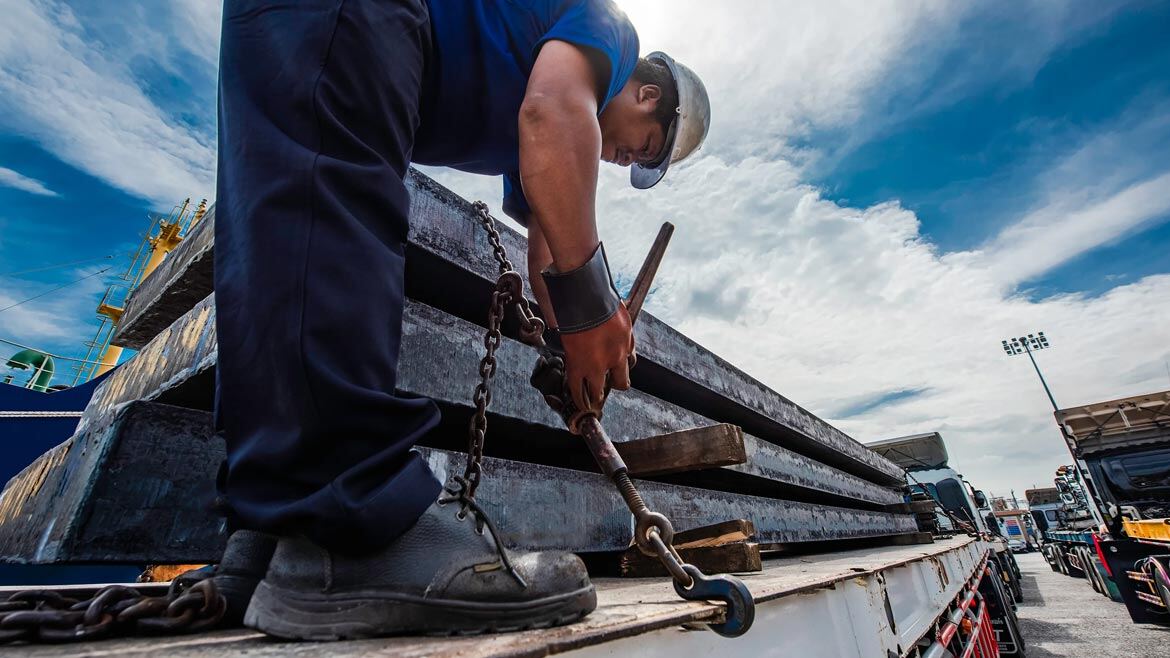Ensure your fleet meets DOT standards effortlessly. Rolon's mobile services include on-site inspections, preventative maintenance, and crucial repairs for optimal safety and efficiency.
Running your company's vehicles legally and efficiently requires good fleet compliance management. Understanding the regulations set by groups like the Department of Transportation DOT might seem challenging at first.
However, by implementing effective strategies for fleet compliance, you can be sure of smoother operations and avoid potential penalties. This straightforward guide will walk you through the simple steps and introduce helpful tools to strengthen your fleet management compliance and cover the fleet compliance essentials you need.
Key Areas For Keeping Your Fleet Legal
Several important areas form the foundation of legal operation for your vehicle fleet. Disregarding any of these could lead to issues during roadside inspections and harm your business. It's important to understand fleet compliance, fleet safety compliance, and the basic fleet compliance essentials.
Driver Qualifications: Being certain that all drivers operating your vehicles are qualified is crucial for fleet safety compliance. This involves carefully checking their driving history, maintaining accurate driver qualification files, verifying their medical certifications and training programs, and providing ongoing training on important safety standards. Having qualified drivers reducing the risk of accidents and other issues is a fleet compliance essential.
Hours of Service (HOS): Following the rules regarding how long drivers can work and rest (hours of service hos) is vital to prevent driver fatigue, and to stay on top of the needed paperwork. Accurate driver logs, often now managed electronically with real time data, are necessary for compliance to driving times. Sticking to these rules is a key part of fleet compliance and supports good fleet management compliance.
Vehicle Care and Compliance: Keeping your commercial vehicles in safe working order through regular inspections and detailed vehicle maintenance records is important for fleet maintenance and compliance. Drivers play a role by completing Driver Vehicle Inspection Reports DVIRs. Proper vehicle care is important for fleet safety compliance and is one of the fleet compliance essentials.
Substance Testing: Starting a program for drug and alcohol testing for your drivers helps ensure a safe work environment and meets regulatory requirements. This testing is part of the safety standards for your fleet operations and contributes to fleet safety compliance. It's a fleet compliance essential.
Building a Safety-Focused Culture: Your entire organization should prioritize safety and the following of regulations (safety and compliance). This includes having clear policies and communicating about safety standards regularly. A strong safety culture supports effective fleet compliance management and is a key aspect of the fleet compliance essentials.
Easy Ways To Improve Fleet Compliance Management
Fortunately, there are user-friendly tools and services available to simplify fleet compliance. Fleet management systems assist with a variety of aspects of the job. Fleet management software can help track different parts of compliance and provide real time information. Electronic Logging Devices (ELDs) simplify tracking hours of service hos. Additionally, compliance management service providers can offer expert advice on navigating fleet compliance, including fleet safety compliance and fleet maintenance and compliance.
Besides programs and helpers, there are other simple things you can do. Have regular meetings with your drivers and other workers. Talk about the rules and why they are important. Conduct corrective actions when necessary. Make sure everyone knows what the rules are for things like driving hours (hours of service hos) and taking care of the trucks (vehicle maintenance).
Put up signs or send out simple reminders about the safety standards. Make it easy for drivers to report any problems with their trucks (Driver Vehicle Inspection Reports DVIRs). Listen to what your drivers say. They are the ones doing the job every day and might have good ideas about how to follow the rules better.
Also, make sure you have someone in your company who is in charge of knowing the rules (compliance management). This person can answer questions and help everyone understand what they need to do to keep the fleet compliant. They can also keep up with any new rules from groups like the Department of Transportation DOT and the Motor Carrier Safety Administration. Making it easy to ask questions and get answers helps everyone follow the rules and keeps your fleet operations running smoothly.
Why It's Important To Follow Fleet Regulations
Not following the rules for your fleet operations can have serious consequences. You could face hefty fines. Your vehicles or drivers might be taken off the road during roadside inspections. You might be subject to more frequent audits. Your insurance costs could increase. Your business's reputation could suffer. You could even face legal issues. Therefore, good fleet compliance management is very important. The Motor Carrier Safety Administration oversees these regulations.
To further explain the importance of legal fleet operations: It protects your drivers. Rules like hours of service hos help ensure drivers don’t drive when they are too tired. Well-maintained vehicles from good vehicle maintenance also contribute to their safety. When your fleet is compliant, the roads are safer for everyone. This is a significant part of fleet safety compliance and demonstrates your understanding of fleet compliance essentials.
Furthermore, a compliant business projects a better image. Customers are more likely to trust a company that focuses on safety and operates legally compliant commercial motor vehicles. This can lead to increased business opportunities. Effective fleet compliance management shows that you are a responsible and trustworthy organization.
Following regulations can also save you money in the long run. Avoiding hefty fines is one clear benefit. Additionally, properly maintained vehicles through good fleet maintenance and compliance are less likely to experience breakdowns, reducing repair costs and downtime for your fleet operations. Smart fleet compliance contributes to efficient operations and cost savings.
The regulations for commercial vehicle fleets are in place to make sure of the safety of everyone on the road. By practicing fleet compliance, you are aiding overall road safety. This is an important responsibility for any business operating commercial vehicles. Understanding the fleet compliance essentials helps you meet this responsibility effectively.
The Importance of Staying Informed and Communicating
Staying informed about regulatory updates is also crucial. Groups like the Department of Transportation DOT and the Motor Carrier Safety Administration may introduce changes to the rules. By staying up-to-date, you can ensure your fleet management compliance remains effective. Various resources are available to keep you informed about federal motor carrier safety regulations.
Using effective fleet management tools can also simplify fleet compliance management. Software that helps track vehicle maintenance schedules, driver hours of service hos, and driver qualification information can help you stay organized. These tools are part of the fleet compliance essentials for modern fleet operations.
Finally, clear communication with your drivers and staff about safety standards and regulations is also important. When everyone understands the importance of compliance and how to adhere to the rules, your fleet safety compliance will be significantly improved. Open communication is a vital component of effective fleet compliance management.
Conclusion of Fleet Compliance Management
Keeping your vehicle fleet legally sound doesn't have to be a headache. By focusing on the fleet compliance essentials and taking simple, consistent steps in areas like driver qualifications, vehicle maintenance, and following driving hour rules, you can build a strong foundation.
Utilizing available tools and staying informed about regulations from groups like the Department of Transportation DOT will further ease the process. Remember, prioritizing fleet compliance management not only keeps you on the right side of the law, helping you avoid hefty fines, but also contributes to a safer and more efficient operation for everyone involved. A commitment to these practices ensures the long-term success and reputation of your fleet operations.
Get in Touch with Rolon
Count on Rolon Mobile Truck Repair for reliable, 24/7 semi-truck repair. Our expert team delivers convenient mobile repair services throughout Sanford, Florida, and the surrounding region.
FAQs About Fleet Compliance
What is fleet compliance?
Fleet compliance means following all the laws and rules for operating a group of vehicles legally and safely. This includes rules about drivers, vehicles, and how the business runs. It helps avoid problems and keeps everyone safe on the road.
What is DOT fleet compliance?
DOT fleet compliance specifically refers to following the rules set by the Department of Transportation DOT. These rules apply to commercial vehicles and drivers to ensure safety on highways. Following DOT rules helps avoid penalties from the federal government.
What is fleet safety compliance?
Fleet safety compliance means following rules and taking steps to prevent accidents and injuries involving your vehicles and drivers. This includes things like training, vehicle upkeep, and driver health. Keeping your fleet safe protects your business and the public.
How do I see which compliance regulations apply to my fleet?
To find out which rules apply, you need to know what kind of vehicles you have and where they operate. Check the websites of the Department of Transportation DOT and your state's transportation agency. You might also need to consider the type of goods you carry.
What happens if my fleet is not DOT-compliant?
If your fleet doesn't follow DOT rules, you can face hefty fines and your vehicles might be stopped from operating (out-of-service orders). This can disrupt your business and cost you a lot of money. It can also lead to more inspections and higher insurance costs.





